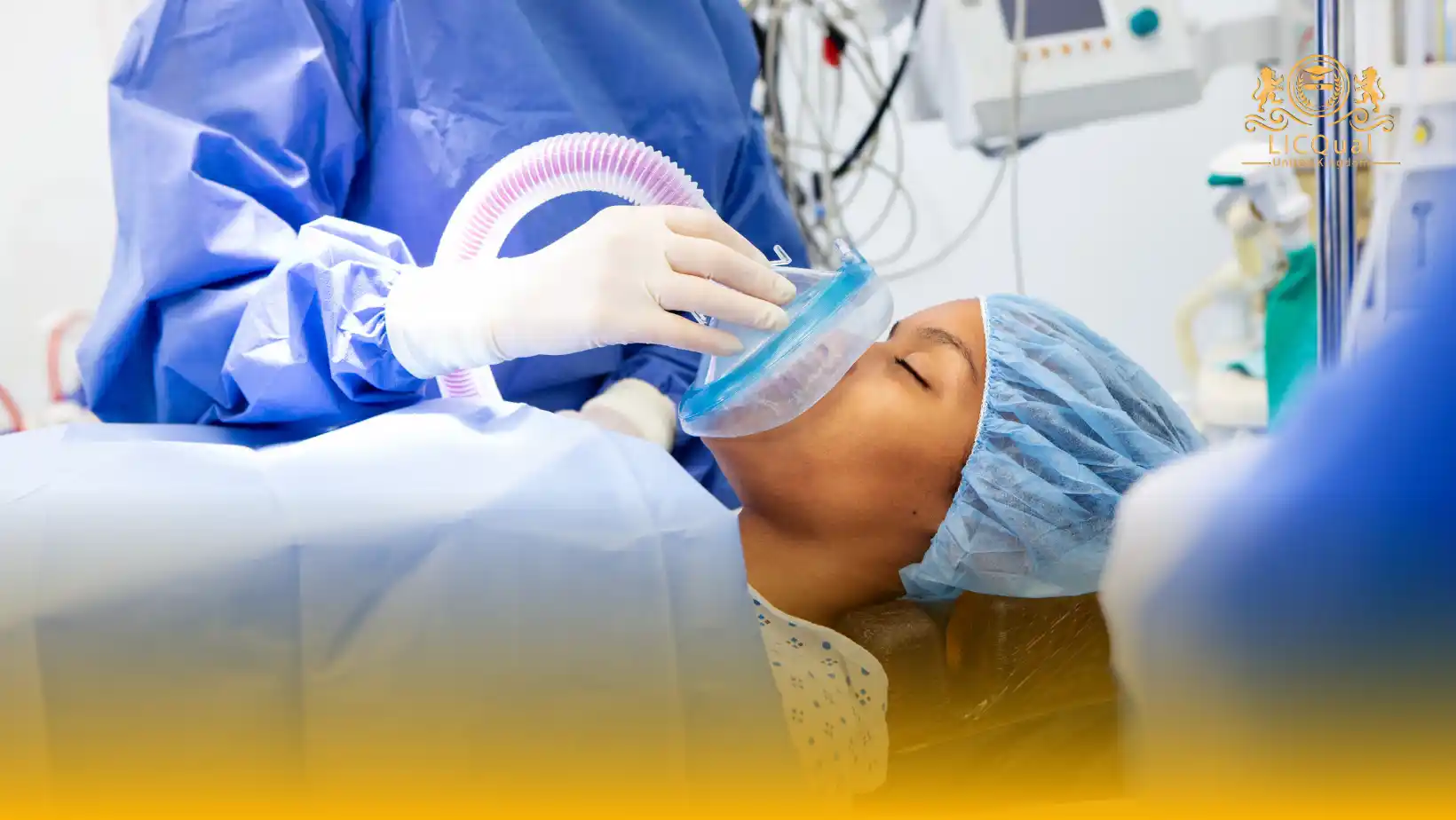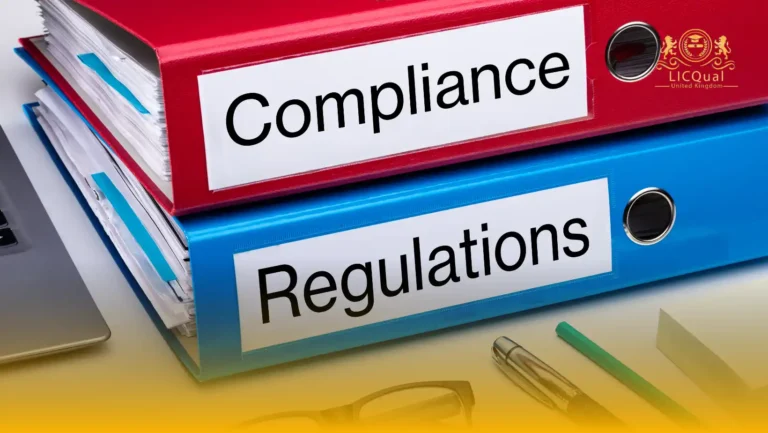The LICQual Level 3 Certificate in Anesthesia (Cert Anesthesia) is a specialised qualification designed for healthcare professionals seeking to enhance their expertise in anaesthesia, advance their career prospects, and strengthen their Continuing Professional Development (CPD). This course is not intended for fresh candidates; it is specifically tailored for learners who already have experience in healthcare, clinical support, or surgical settings and wish to gain advanced knowledge and practical skills in anaesthesia practice.
Learners on this course will explore a broad range of topics, including principles of anaesthesia, patient assessment, administration of anaesthetic agents, monitoring techniques, perioperative care, and safety protocols. The course equips learners with the skills and knowledge required to support safe and effective anaesthetic procedures, contributing to optimal patient outcomes in clinical and surgical environments.
The course emphasises both theoretical knowledge and practical application. Learners will gain insights into preoperative evaluation, intraoperative monitoring, post-operative care, pain management, and emergency interventions, ensuring they are fully prepared to support anaesthesia practice safely and competently.
Centres delivering the LICQual Level 3 Certificate in Anesthesia must ensure teaching is conducted by competent and qualified staff, supported with appropriate learning materials and resources. Accredited centres must provide a structured learning environment that promotes learner engagement, practical competency, and successful achievement of the qualification.
Upon completion, learners will be equipped to support anaesthesia procedures, contribute to patient safety, enhance perioperative care, and strengthen multidisciplinary team collaboration, making a significant impact in clinical and surgical care settings.
Course Overview
Qualification Title
LICQual Level 3 Certificate in Anesthesia (Cert Anesthesia)
Total Units
6
Total Credits
24
GLH
120
Qualification #
LICQ2200838
Qualification Specification
To enroll in the LICQual Level 3 Certificate in Anesthesia (Cert Anesthesia), applicants must meet the following criteria:
|
Qualification# |
Unit Title |
Credits |
GLH |
|---|---|---|---|
|
LICQ2200838-1 |
Principles of Anesthesia |
4 |
20 |
|
LICQ2200838-2 |
Patient Assessment and Preoperative Care |
4 |
20 |
|
LICQ2200838-3 |
Administration of Anesthetic Agents |
4 |
20 |
|
LICQ2200838-4 |
Intraoperative Monitoring and Support |
4 |
20 |
|
LICQ2200838-5 |
Postoperative Care and Pain Management |
4 |
20 |
|
LICQ2200838-6 |
Professional Practice and Ethics in Anesthesia |
4 |
20 |
By the end of this course, learners will be able to:
Unit 1: Principles of Anesthesia
By the end of this unit, learners will be able to:
- Explain the role and scope of anesthesia in surgical and clinical care.
- Compare different types of anesthesia: general, regional, and local.
- Analyse the impact of anesthesia on patient outcomes and safety.
- Identify emerging trends and contemporary challenges in anesthesia practice.
Unit 2: Patient Assessment and Preoperative Care
By the end of this unit, learners will be able to:
- Conduct thorough preoperative assessments and review patient medical history.
- Evaluate patient risk factors and potential complications prior to anesthesia.
- Prepare patients safely and effectively for anesthesia.
- Apply infection control and safety protocols in preoperative settings.
Unit 3: Administration of Anesthetic Agents
By the end of this unit, learners will be able to:
- Describe the pharmacology and mechanisms of action of common anesthetic agents.
- Apply correct techniques for administering anesthesia safely.
- Monitor patient responses during induction and maintenance of anesthesia.
- Recognise and manage adverse reactions to anesthetic agents.
Unit 4: Intraoperative Monitoring and Support
By the end of this unit, learners will be able to:
- Monitor vital signs and overall patient condition during surgical procedures.
- Use anesthesia equipment and monitoring tools effectively.
- Respond appropriately to changes in patient status during surgery.
- Ensure patient safety through adherence to clinical guidelines.
Unit 5: Postoperative Care and Pain Management
By the end of this unit, learners will be able to:
- Provide safe postoperative care and monitor patient recovery.
- Identify and manage postoperative complications effectively.
- Apply evidence-based pain management strategies.
- Support patients physically and emotionally during recovery.
Unit 6: Professional Practice and Ethics in Anesthesia
By the end of this unit, learners will be able to:
- Apply professional standards and ethical principles in anesthesia practice.
- Maintain accurate records and ensure patient confidentiality.
- Engage in reflective practice and Continuing Professional Development (CPD).
- Deliver safe, effective, and compassionate anesthesia care.
The LICQual Level 3 Certificate in Anesthesia (Cert Anesthesia) is designed for healthcare professionals who want to strengthen their expertise in anesthesia practice, patient safety, and perioperative care. This Level 3 anesthesia certification is ideal for doctors, nurses, allied health workers, and international professionals seeking a recognised, CPD-accredited qualification. Whether you are advancing your career, expanding your role, or building a strong foundation in anesthesia, this course equips you with the skills to succeed.
1. Doctors and Physicians
- Gain advanced training in anesthesia administration and monitoring
- Strengthen clinical decision-making in perioperative care
- Enhance patient safety with evidence-based anesthesia practices
- Earn a recognised Level 3 anesthesia qualification for career growth
- Expand opportunities in hospitals, surgical centers, and private practice
2. Nurses and Nurse Practitioners
- Develop specialist knowledge in anesthesia and patient care
- Improve confidence in supporting anesthetic procedures
- Learn safety protocols and ethical considerations in anesthesia
- Boost your CPD portfolio with an accredited anesthesia certificate
- Prepare for advanced roles in perioperative and critical care settings
3. Allied Health Professionals
- Suitable for operating department practitioners, paramedics, and technicians
- Understand the multidisciplinary role in anesthesia care
- Learn patient assessment and monitoring techniques
- Strengthen collaboration with doctors and nurses in surgical teams
- Add a career-boosting qualification to your professional profile
4. Medical and Nursing Students
- Build a strong foundation in anesthesia principles and practice
- Complement academic studies with practical, applied knowledge
- Improve employability with a specialist Level 3 certification
- Gain early exposure to perioperative and patient safety protocols
- Prepare for advanced training and clinical specialisation
5. Healthcare Administrators and Managers
- Understand the role of anesthesia in safe surgical service delivery
- Gain insights into compliance, safety, and ethical frameworks
- Improve leadership in multidisciplinary healthcare teams
- Enhance service quality with evidence-based anesthesia practices
- Strengthen credentials with a recognised qualification
6. Caregivers and Support Workers in Surgical Settings
- Learn essential knowledge of patient safety and comfort
- Understand the basics of anesthesia support and monitoring
- Gain confidence in assisting healthcare teams during procedures
- Strengthen your role in community and hospital-based care
- Earn a certificate that validates your skills and dedication
7. International Healthcare Professionals
- Access a globally recognised anesthesia qualification
- Gain knowledge aligned with UK and international standards
- Improve career mobility across healthcare systems worldwide
- Enhance your CPD portfolio with accredited training
- Stand out in competitive global healthcare markets
To deliver the LICQual Level 3 Certificate in Anesthesia effectively and maintain high-quality training standards, centres must meet the following requirements:
- Accredited Training Facility: Centres must hold proper accreditation to deliver Level 3 healthcare and anesthesia qualifications in compliance with LICQual quality standards.
- Qualified and Competent Staff: Trainers should be experienced healthcare professionals with expertise in anesthesia, perioperative care, and patient monitoring.
- Comprehensive Learning Resources: Centres must provide learners with up-to-date textbooks, journals, digital resources, and evidence-based guidelines relevant to anesthesia practice.
- Practical Training Facilities: Access to clinical, operating theatre, or simulation environments for practical exercises and applied anesthesia learning.
- Health and Safety Compliance: Centres must maintain strict health, safety, and infection control protocols to ensure the safety of learners and staff.
- Assessment and Evaluation Capability: Ability to conduct both theoretical and practical assessments, including case studies, clinical simulations, and hands-on demonstrations, aligned with LICQual standards.
- Learner Support Services: Provision of mentoring, academic guidance, and additional support to ensure learners achieve their outcomes successfully.
- Technology and IT Infrastructure: Access to e-learning platforms, online research databases, and digital tools to support both theoretical and practical learning.
- Record Keeping and Reporting: Systems for accurate learner registration, progress tracking, assessment documentation, and timely certification.
- Compliance with International Standards: Centres should align training delivery with global best practices in anesthesia, perioperative care, and patient safety.
Assessment and Verification
All units within this qualification are subject to internal assessment by the approved centre and external verification by LICQual. The qualification follows a criterion-referenced assessment approach, ensuring that learners meet all specified learning outcomes.
To achieve a ‘Pass’ in any unit, learners must provide valid, sufficient, and authentic evidence demonstrating their attainment of all learning outcomes and compliance with the prescribed assessment criteria. The Assessor is responsible for evaluating the evidence and determining whether the learner has successfully met the required standards.
Assessors must maintain a clear and comprehensive audit trail, documenting the basis for their assessment decisions to ensure transparency, consistency, and compliance with quality assurance requirements.







